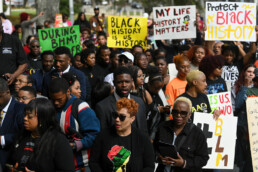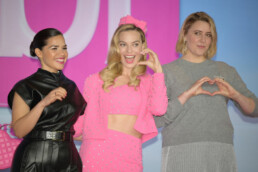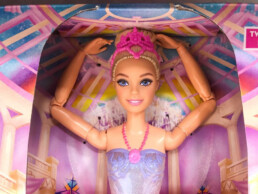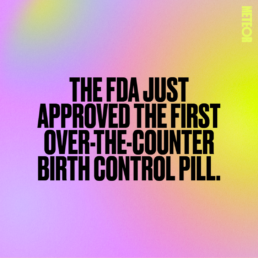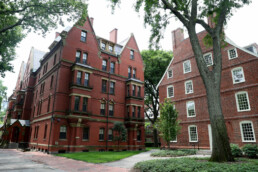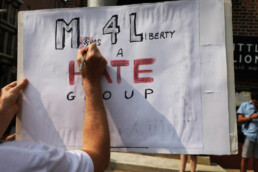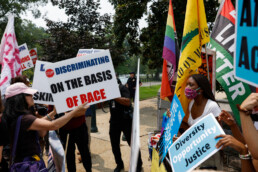Understanding Florida's batshit curriculum
 July 27, 2023 Good evening, Meteor readers, As you have likely heard, singer and activist Sinéad O’Connor passed away yesterday at 56. The tributes pouring in in her honor have been gorgeous and gutting. I want to add one more. As a young transfemme person in the mid-2010s, I searched for examples of who I wanted to look like when I grew up. And so many versions of femininity seemed unattainable to me, too far a leap from my current reality. But Sinéad gave me a roadmap. In a 1991 Spin magazine interview I found online, she said, “Shaving my head to me was never a conscious thing. I was never making a statement. I was just bored one day and wanted to shave my head, and that was literally all there was to it.” When I read that, it occurred to me: Oh. I can do whatever the hell I want. So I shaved my head too. Women are told left and right how femininity should be expressed. But alongside her many other contributions, Sinéad gave me—and so many others—the power to realize my self-expression didn’t have to be this huge, profound decision. I could choose something just because I wanted to. In today’s newsletter, Keisha N. Blain, professor of Africana Studies at Brown University, brings historical perspective to Florida’s curriculum whitewashing. You can read her discussion with Rebecca Carroll down below. But first, the news. Having a drink before the war, Bailey Wayne Hundl  WHAT'S GOING ON
 IT'S ALWAYS FLORIDAWhat Exactly Does Ron DeSantis Want Students to Learn About Enslavement?A professor and historian breaks down Florida's new propaganda campaign disguised as a school curriculum. BY REBECCA CARROLL (IMAGE BY JOSHUA LOTT VIA GETTY IMAGES) Last week, the Florida Board of Education unanimously approved a new set of standards for how Black history will be taught in schools. Included in these new standards is an emphasis on teaching “the ways slaves developed skills which, in some instances, could be applied for their personal benefit,” and highlighting “acts of violence” perpetrated by Black folks against other Black folks during slavery. Neither of those claims are factual, and both attempt to mask the actual brutality of white people during enslavement. I needed to understand more, so I reached out to professor of Africana Studies at Brown University and MSNBC contributor Keisha N. Blain Ph.D., because, honestly, help. Rebecca Carroll: I know you’ve written about the Florida Board of Education’s new standards for teaching Black history in the classroom—but what was your initial reaction to the curriculum changes both as a historian and a teacher? Keisha N. Blain: As a professor, I know these standards are poorly designed. But far beyond the poor quality of these standards, I am deeply disturbed by the whitewashing of history and the negative impact these standards will ultimately have on the teaching of United States history in Florida—and beyond. Even if, in some instances, enslaved people developed skills that ultimately helped them survive/thrive, why does that immediately humanize the enslavers rather than emphasize the resilience of enslaved people? The new instructional guidance reveals a complete misunderstanding of chattel slavery as it was practiced in the United States. The goal of these standards is to hide the harsh conditions of enslavement and protect white Americans from grappling with the ugliness of slavery. The goal is clear: The Florida Board of Education wants to foreground a version of slavery wherein enslaved people could benefit. This framing underscores that the plan is not to discuss the resilience of enslaved people; they want to make slavery appear less evil. This effort also cannot be separated from past methods of instruction: Until the 1960s, white historians and educators often promoted a narrative of benevolent white slaveholders and content enslaved people. This discussion also ignores how the economic exploitation of Black Americans through sharecropping, prison labor, and redlining continued to rob them of opportunity. Emancipation did not free Black Americans from discrimination or racism; those practices continued as white Americans continued to reap all of the “benefits” from Black laborers. And what is the nuanced conversation that we should be having here? Because if I believe that the history of racism is about dehumanizing and terrorizing Black and brown people, and Florida believes the history of racism is biased against white people, we have a real problem. One of the reasons I became a historian is because I came to the recognition that a deep understanding of the past is one of the ways we can build a better future. If we don’t carefully access what has already taken place over the last few centuries, then we run the risk of making the same mistakes over again. We cannot be “wishy-washy” about topics such as slavery. We have to be firm in acknowledging that slavery was a brutal and exploitative economic and labor system that attempted to strip Black people of their inherent humanity. Anyone who dances around this fact has already embraced white supremacist ideology, and deep down inside, they don’t mind returning to an era of slavery. How do you think these new standards will affect classroom dynamics—will students start recording teachers in an effort to catch them saying something “bad,” meaning something accurate? On the one hand, students could absolutely weaponize these standards against teachers. Some of this will likely emerge from parents pushing their children to report these matters; some will also likely arise from students wanting to target certain teachers they don’t like. These standards are intended to curb free speech and push teachers to endorse a false version of history out of fear. On the other hand, I am also thinking about those students and educators who are bold and savvy enough to bypass these new restrictions. One of the benefits of living in the age of computers is that we have quick access to a lot of information. Banned books in schools can still be accessed elsewhere and students can find deeply researched and accurate accounts of history in other venues. Educators are also skillful at coming up with ways to share information with their students—even if it means defying these new standards. Ultimately, Black people have dealt with this before—others have tried to block our ideas and history in the classroom setting for decades. But Black history education has persisted through decades of repression. This all feels similar to the “stand your ground” laws, which say that if anyone (often a white person) feels threatened they can use force. I think the impact of these standards—and the Florida state government’s recent attempt to outlaw making white people uncomfortable—is to spread misinformation. Gov. Ron DeSantis and other conservatives are trying to render history into moral statements—such as “the United States is faultless”; “no one is to blame for slavery”; and “racism no longer exists.” This is nothing more than propaganda, [and] when public institutions are pushing this form of propaganda, conflict will emerge whenever someone points out historical facts. Seen from this perspective, this has a real chance of turning classrooms into powder kegs where fights can erupt at any moment. It also makes teachers’ jobs much more difficult. Educators in Florida are now fighting the state simply by telling their students an accurate and unadulterated version of history based on years of research. In your opinion, what do you think DeSantis wants students to learn? Like, specifically? I think the basic lesson that Gov. DeSantis and the Florida Board of Education want students to learn can be boiled down to the idea that white Americans carry no guilt for the enslavement and exploitation of Black Americans. This is why their standard that mentions the 1921 Tulsa Massacre and the 1923 Rosewood Massacre makes sure to state that the lessons should include the “acts of violence perpetrated against and by African Americans.” They are designed to conflate the violence committed against Black communities with the actions of Black Americans defending themselves from white mobs. In short, they are trying to instill a narrative that exculpates white Americans and tacitly embraces the nation’s history of white supremacy. There is this sense that Black folks can (and should?) endure anything, which, in effect, is normalizing our trauma, no? We do run that risk. But I also think it is important to take pride in how our ancestors fought and resisted against white supremacist forces. We can avoid this pitfall of “normalizing our trauma” by recognizing how the history of Black liberation contains lessons for the present. When we look back on figures like Fannie Lou Hamer, Ida B. Wells, Sojourner Truth, and others, we cannot ignore the toll their activism took on them—but their lives also show us strategies and tactics we can use today to resist white supremacy.  Rebecca Carroll is a writer, cultural critic, and podcast creator/host. Her writing has been published widely, and she is the author of several books, including her recent memoir, Surviving the White Gaze. Rebecca is Editor at Large for The Meteor.  WEEKEND READSOn education: Sex ed teachers have been forced into hiding by right wing “activists.” On sports: U.S. Soccer is trying to support working moms on the pitch. How can the rest of us get some of that? On money: “How student loan debt has fueled the pay gap for Black women.” On gawd: How Catholics reconsidered their relationship with The Vatican after Sinead O’Connor tore an image of Pope John Paul II on national television.  This newsletter was written by Bailey Wayne Hundl, Shannon Melero, and Rebecca Carroll. FOLLOW THE METEOR Thank you for reading The Meteor! Got this from a friend?
|
![]()
Barbie is a community organizer
|
Hey Meteor readers, I hope you all enjoyed Barbenheimer weekend. I’m sure Greta Gerwig did, as she watched her film become the biggest box office opening for a female director ever. And I personally am just glad the world is finally getting on board with liking Barbie, an agenda I have been pushing since 1997. In today’s newsletter, we are spotlighting the World Cup, shaking our heads at Greg Abbott again, and discussing the power of community organizing in Barbieland. You didn’t think you’d only get one Barbie newsletter, did you? Cleaning my Misty Copeland Barbie, Shannon Melero  WHAT'S GOING ON
 THE INTENSITY! THE DRIVE! THE FUTURE! (IMAGE BY PATRICIA PEREZ FERRARO VIA GETTY IMAGES) AND:
 THINK PINKThis Barbie Is a Community OrganizerConsciousness-raising was effective in Barbieland. I bet it would be here, too.BY SAMHITA MUKHOPADHYAY  (IMAGE BY THE CHOSUNILBO VIA GETTY IMAGES) SPOILERS AHEAD There has been no shortage of ink spilled about the cultural, political, social, and feminist meaning of the new Barbie movie directed by Greta Gerwig and starring Margot Robbie. The fantastical pink plastic joyride is many things: a box office record breaker; an exploration of Barbie’s legacy; a meditation on gender and masculinity; a rigorous look at the impossible standards we hold women to; and a referendum on easy narratives about girl power. This was all a surprise to me—I had walked into Barbie with a good bit of skepticism. Barbie, the doll, was never a feminist mascot to me, even if she had certain qualities that were radical, especially for her time. At the end of the day, she represented the exact untenable beauty standards that grated at me as a young woman. My protests started young: I shaved all my Barbie’s heads, something that still horrifies my mother. (To be fair, I later shaved my own head as well—it was the ’90s!) But Barbie tackles my ’90s feminist judgments head-on—implying that simply hating Barbie was also limited in its scope. The movie ultimately sends the message that the problem isn't other women—it's the system. Midway through, America Ferrera’s character Gloria gives a powerful speech about the competing pressures of being a woman that serves as a turning point in the film, a profoundly earnest scene in what is up to that moment airy, humorous fare. She tells a despondent Robbie, “It is literally impossible to be a woman. You are so beautiful and so smart, and it kills me that you don’t think you’re good enough. Like, we have to always be extraordinary, but somehow we’re always doing it wrong.”  Barbie has an awakening at this moment, what feminists including my friend Courtney Martin have called the “click moment”: the moment you realize you have been living a limited version of yourself thanks to the patriarchy™ and that feminism is a real and tangible thing that can make your life better. So the Barbies hatch a plot to convince other Barbies who have been brainwashed that they need to think for themselves, not in the service of their beer-drinking, Godfather-watching counterparts. They quickly come to their senses and band together to overthrow the Kens and, literally, rewrite the Constitution. And that’s the truly radical thing about Barbie. Like the feminists of the 1970s, who used consciousness-raising circles to let women air their grievances and figure out what to do next, the film uses coming together as Step One. Step Two is overthrowing the patriarchy. Before the film came out, the right was stressed about the movie being anti-man or too “woke.” They were right to be worried about this doll movie—but less for those reasons than for the road map it makes. As we navigate the aggressive assault on women’s rights, Barbie perhaps gives us a path forward: When we share our stories and come together—we can make anything happen. That is a lesson in community organizing and the power of democratic majorities we’d do well to consider.  PHOTO BY HEATHER HAZZAN Samhita Mukhopadhyay is a writer, editor, and speaker. She is the former Executive Editor of Teen Vogue and is the co-editor of Nasty Women: Feminism, Resistance and Revolution in Trump's America and the author of Outdated: Why Dating is Ruining Your Love Life, and the forthcoming book, The Myth of Making It.  AROUND THE WORLD CUP ⚽️If you’ve been waking up at all hours of the night to catch live matches, I salute you. If not, here’s a quick rundown of what the world’s best soccer players are getting into.
You can tune into Fox Sports and FS1, or stream games on YouTube TV. Here’s the match lineup for this week!  FOLLOW THE METEOR Thank you for reading The Meteor! Got this from a friend? Sign up for your own copy, sent Tuesdays and Thursdays.
|
![]()
The one thing Barbie never was
 July 20, 2023 Come on, Meteor readers, let’s go party, After years of anticipation, debate, hot pink outfits, and hot pink lake water, the Barbie movie premieres tomorrow. In today’s newsletter, culture critic Scarlett Harris combs through the 64-year history of the controversial doll to understand the (potentially radical) reasons why she never became a mother. And because we know you are obsessed like we are, we’ve also assembled The Ultimate Barbie Reading Guide, covering everything from the doll’s accidental feminist legacy to her impact on Black and brown girls. But first, the news. Thinking pink, Bailey Wayne Hundl  WHAT'S GOING ONTexas women fight back: Three women testified yesterday as part of a 15-plaintiff lawsuit against the state of Texas for allegedly being denied life-saving abortion care due to the state’s draconian abortion ban. The ban, one of the most severe in the country, makes it a felony to perform an abortion, and doing so could result in a fine of up to $10,000, the loss of the doctor’s medical license, and up to a lifetime in prison. The suit brought by the Center for Reproductive Rights asks for the law to be temporarily blocked and for the state to clarify what constitutes a medical emergency that will allow for an abortion. One of the women who shared her harrowing experience on the stand was Amanda Zurawski, who first told her story to the Meteor last fall. Zurawski was denied the procedure, her life put at risk. “I survived sepsis, and I don’t think today was much less traumatic than that,” she said. Another plaintiff, Samantha Casiano, shared that she was forced to deliver her fetus even after learning it would not develop a skull or brainstem. As she told her story, she vomited on the stand, and the court had to go into recess. This hearing is nothing short of historic. According to the Texas Tribune, these women are likely the first to testify about the impacts of abortion bans on their bodies since 1973. Despite their courageous testimony, the state is pushing back, claiming the law doesn’t need to be amended and putting the onus instead on doctors. But that doesn’t change the fact that if these women win, Texans who need abortions will not have to go through what they did. AND:
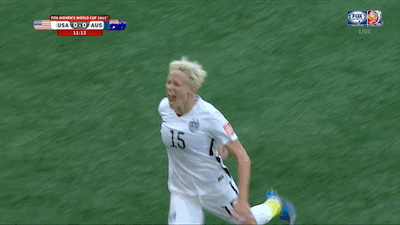
 LIFE IN PLASTICBarbie, Child-Free IconBY SCARLETT HARRISThere's only one thing this doll hasn't done. Why, exactly?  A BARBIE DOLL LOUNGES IN HER PACKAGING. (PHOTO BY DAVID BENITO/GETTY IMAGES) The opening scene of Barbie, the much-anticipated movie event hitting cinemas tomorrow directed by Greta Gerwig and starring Margot Robbie, is a parody of Stanley Kubrick’s 2001: A Space Odyssey. In it, young girls smash their baby dolls in favor of Robbie’s Barbie. Outfitted in the fashion doll’s original get-up of a black-and-white-striped bathing suit, cat-eye sunglasses, and permed bangs, Robbie stands in the center, a glamazon, signaling the dawn of a new woman. Barbie, the doll, was conceived by Ruth Handler, an executive at Mattel, in the 1950s. After observing her daughter, Barbara, for whom Barbie is named, assigning adult roles to her paper dolls, she came up with the idea—and modeled her creation after a doll based on a German comic strip chronicling the life of a sex worker, Bild Lilli. Before Barbie hit the market in 1959, dolls for girls were primarily babies meant to teach their owners the caregiving skills they would inevitably need for lives of housewifery and childrearing. But Barbie brought something new: She represented a wide range of fulfilling lifestyles outside of traditional feminine responsibilities. Barbie could be anything she wanted: an astronaut, an artist, even the President. But, in all these years, she’s never wanted to be a mother. Barbie’s impact has been widely debated, and Barbie leans into this. Is she a feminist icon or nightmare? But one thing cannot be denied: Since her inception, Barbie has been the main character of her own story. She was made to be someone rather than someone’s someone. And in keeping with Barbie tradition, the film’s fantastical Barbieland does away with traditional gender roles. Ken (launched as a boyfriend doll in 1961) lives in service of Barbie, even going so far as to be referenced as “and Ken” in his mugshot—a pure appendage, even if Ken doesn’t have one himself. In a reversal of the biblical creation myth, Ken is spawned from Barbie. “I only exist in the warmth of your gaze,” he says. And, unlike Barbie, he has no occupation—his job is literally described as “beach” in the film. The message was radical for its time: When the doll debuted, there were few images of female breadwinners. Women couldn’t even get a credit card in their own name without permission from a father or husband until 1974, almost twenty years after Barbie had enjoyed financial independence and career achievement in fields such as modeling (her first occupation), nursing (1961), space and aeronautics (1965 and 1966, respectively), surgery (1973) and Olympic gymnastics (1974). All those jobs become even more impressive when you consider that, canonically, Barbie is 19 years old. Maria Teresa Hart, the author of the book Doll, points out that her age at the time of her introduction would have put her on the precipice of two possible paths: marriage and babies or continuing her current lifestyle as a Career Girl with a bevy of friends. “That ambiguity is part of the attraction: she’s at this tipping point where she could make a variety of choices,” says Hart. “Every avenue is open to her.”  MARGOT ROBBIE AT A PRESS JUNKET FOR THE BARBIE MOVIE (PHOTO BY RODIN ECKENROTH/FILMMAGIC) And yet Barbie never travels down the avenue of parenthood, unless you count the amount of time she spent caring for her sisters, Stacey and Chelsea. (If, during your childhood, Barbie’s youngest sister was named Kelly: congratulations, you’re officially old and missed Kelly’s rebrand as Chelsea in 2011.) Barbie’s childlessness was intentional: Handler wanted to show her daughter that fulfillment can exist outside of the home. In the film, her open-plan, multi-story dream house is a dwelling for one—no child safety, no doors. “It’s very definitely a house for a single woman,” production designer Sarah Greenwood told Architectural Digest. Barbie’s other accessories weren’t made with would-be kids in mind, either—the Barbie Porsche convertible I had as a child definitely didn’t have a car seat, and the only baby in sight belonged to the much-maligned Midge, a visibly pregnant doll who was discontinued as Barbie’s bestie in 1967, only to reappear later as Barbie’s married mother friend sans baby bump (though she still angered conservative parents who thought she wasn’t coded strongly enough as a married woman). Documentary filmmaker Therese Schechter, who most recently directed the child-free doco My So-Called Selfish Life, expresses incredulity about Midge’s predicament. “No one has children in that world; why is Midge going to have a baby?” For some, Barbie might still just be a silly doll with an eternally perky and unattainable body. But, as Willa Paskin wrote, Barbie being child-free “remains one of the most radical things about her.” And in a country hell-bent on forcing more and more people to give birth, her childlessness takes on a new and refreshing meaning. As Robbie noted in Vogue, Barbie doesn’t have reproductive organs—which is probably why the elected representatives of Barbieland haven’t tried to police what she does in the Dreamhouse bedroom. Scarlett Harris is a culture critic and author of the book A Diva Was a Female Version of a Wrestler: An Abbreviated Herstory of World Wrestling Entertainment. You can follow her on Twitter @ScarlettEHarris and read her previously published work at her website, The Scarlett Woman.  WEEKEND READSTomorrow is the official premiere of the Barbie movie, so we’ve put together The Ultimate Barbie Reading Guide for everyone who loves—and hates!—the world’s most famous doll.
FOLLOW THE METEOR Thank you for reading The Meteor! Got this from a friend?
|
![]()
Barbie, Child-Free Icon
There's only one thing this doll hasn't done. Why, exactly?
By Scarlett Harris
The opening scene of Barbie, the much-anticipated movie event hitting cinemas tomorrow directed by Greta Gerwig and starring Margot Robbie, is a parody of Stanley Kubrick’s 2001: A Space Odyssey. In it, young girls smash their baby dolls in favor of Robbie’s Barbie. Outfitted in the fashion doll’s original get-up of a black-and-white-striped bathing suit, cat-eye sunglasses, and permed bangs, Robbie stands in the center, a glamazon, signaling the dawn of a new woman.
Barbie, the doll, was conceived by Ruth Handler, an executive at Mattel, in the 1950s. After observing her daughter, Barbara, for whom Barbie is named, assigning adult roles to her paper dolls, she came up with the idea—and modeled her creation after a doll based on a German comic strip chronicling the life of a sex worker, Bild Lilli.
Before Barbie hit the market in 1959, dolls for girls were primarily babies meant to teach their owners the caregiving skills they would inevitably need for lives of housewifery and childrearing. But Barbie brought something new: She represented a wide range of fulfilling lifestyles outside of traditional feminine responsibilities. Barbie could be anything she wanted: an astronaut, an artist, even the President. But, in all these years, she’s never wanted to be a mother.
Barbie’s impact has been widely debated, and Barbie leans into this. Is she a feminist icon or nightmare? But one thing cannot be denied: Since her inception, Barbie has been the main character of her own story. She was made to be someone rather than someone’s someone. And in keeping with Barbie tradition, the film’s fantastical Barbieland does away with traditional gender roles. Ken (launched as a boyfriend doll in 1961) lives in service of Barbie, even going so far as to be referenced as “and Ken” in his mugshot—a pure appendage, even if Ken doesn’t have one himself. In a reversal of the biblical creation myth, Ken is spawned from Barbie. “I only exist in the warmth of your gaze,” he says. And, unlike Barbie, he has no occupation—his job is literally described as “beach” in the film.
The message was radical for its time: When the doll debuted, there were few images of female breadwinners. Women couldn’t even get a credit card in their own name without permission from a father or husband until 1974, almost twenty years after Barbie had enjoyed financial independence and career achievement in fields such as modeling (her first occupation), nursing (1961), space and aeronautics (1965 and 1966, respectively), surgery (1973) and Olympic gymnastics (1974).
All those jobs become even more impressive when you consider that, canonically, Barbie is 19 years old. Maria Teresa Hart, the author of the book Doll, points out that her age at the time of her introduction would have put her on the precipice of two possible paths: marriage and babies or continuing her current lifestyle as a Career Girl with a bevy of friends. “That ambiguity is part of the attraction: she’s at this tipping point where she could make a variety of choices,” says Hart. “Every avenue is open to her.”
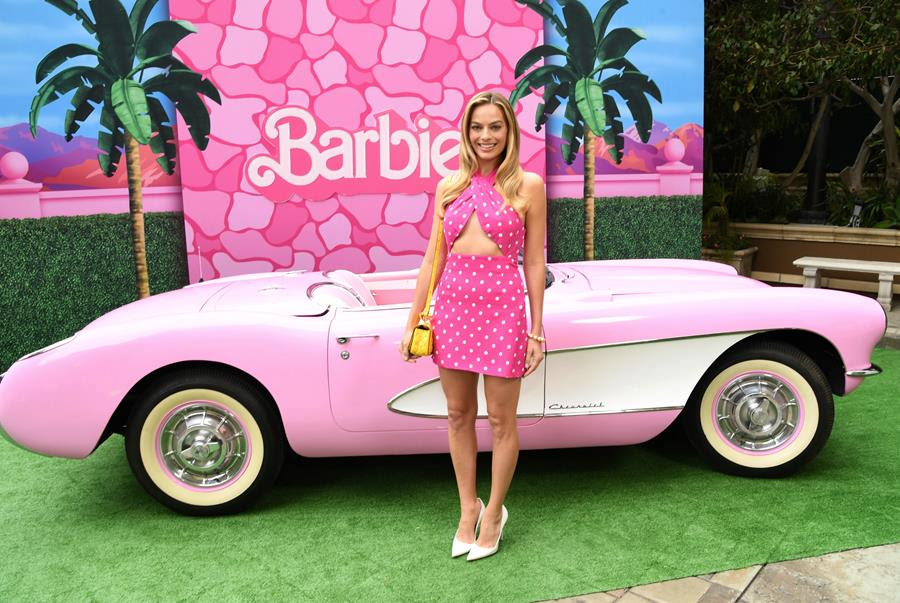
And yet Barbie never travels down the avenue of parenthood, unless you count the amount of time she spent caring for her sisters, Stacey and Chelsea. (If, during your childhood, Barbie’s youngest sister was named Kelly: congratulations, you’re officially old and missed Kelly’s rebrand as Chelsea in 2011.) Barbie’s childlessness was intentional: Handler wanted to show her daughter that fulfillment can exist outside of the home. In the film, her open-plan, multi-story dream house is a dwelling for one—no child safety, no doors. “It’s very definitely a house for a single woman,” production designer Sarah Greenwood told Architectural Digest.
Barbie’s other accessories weren’t made with would-be kids in mind, either—the Barbie Porsche convertible I had as a child definitely didn’t have a car seat, and the only baby in sight belonged to the much-maligned Midge, a visibly pregnant doll who was discontinued as Barbie’s bestie in 1967, only to reappear later as Barbie’s married mother friend sans baby bump (though she still angered conservative parents who thought she wasn’t coded strongly enough as a married woman). Documentary filmmaker Therese Schechter, who most recently directed the child-free doco My So-Called Selfish Life, expresses incredulity about Midge’s predicament. “No one has children in that world; why is Midge going to have a baby?”
For some, Barbie might still just be a silly doll with an eternally perky and unattainable body. But, as Willa Paskin wrote, Barbie being child-free “remains one of the most radical things about her.” And in a country hell-bent on forcing more and more people to give birth, her childlessness takes on a new and refreshing meaning. As Robbie noted in Vogue, Barbie doesn’t have reproductive organs—which is probably why the elected representatives of Barbieland haven’t tried to police what she does in the Dreamhouse bedroom.
Scarlett Harris is a culture critic and author of the book A Diva Was a Female Version of a Wrestler: An Abbreviated Herstory of World Wrestling Entertainment. You can follow her on Twitter @ScarlettEHarris and read her previously published work at her website, The Scarlett Woman.
What the Hollywood strike means for labor
 July 18, 2023 Hello hello, Meteor readers, As you may be acutely aware right now: We’re currently having the hottest summer of all time. In fact, yesterday was the hottest day the entire Northern Hemisphere has had in recorded history. (Mondays, am I right?)  In today’s newsletter, we’re looking at what the joint writer's/actor's strike means for the rest of us, as well as the largest oral history of activism from young girls. Cranking that fan, Bailey Wayne Hundl  WHAT'S GOING ONHot labor summer, cont.: The Writers Guild of America (WGA), representing more than 11,000 film and TV writers, has been on strike since May 2. And last Thursday, July 13, those writers were joined by the 160,000 members of the Screen Actors Guild (known as SAG-AFTRA). That’s right: Hollywood is looking at a double strike for the first time in 63 years. No Teds will be Lassoed and no Things will be Strangered—not until the networks are willing to negotiate with their workers (and not just kill trees to deny them shade). It could be easy to write off the actors’ strike as symbolic as actors are already mega-rich. But that is not so, hypothetical dissident! Michelle Hurd, vice president of SAG-AFTRA’s Los Angeles chapter, says that the number of SAG-AFTRA members who do not have consistent work has risen to 98 percent. “There’s a perception out there that everyone is doing great, that this career choice is lucrative for everyone, when that’s just not true,” Hurd told actor/writer Amber Tamblyn last weekend. “In reality, most SAG members are worried about making rent, let alone buying a home.” In order to make the rent between jobs, actors and writers rely on residuals, recurring payments based on a share of the profits earned by a particular TV show or movie—or at least, that’s how it works in theory. Historically, this led to even minor actors on major hit films and television shows receiving reasonable residuals for years after their projects had wrapped. But things look different in the streaming era. For example, Kimiko Glenn, who played Brook Soso in one of the first big streaming hits on Netflix, “Orange is the New Black,” shared one of her recent residual statements on TikTok; for all 44 episodes she appeared in, her residual compensation was $27.30. For comparison, Ben Haist, who appeared for two minutes as a background actor in 2011’s “Pitch Perfect,” shared that he still receives a residual check for $200-300 per quarter. In other words, the economics have become more challenging for workers in this industry. But that’s before the rise of AI, which threatens to make things worse: SAG-AFTRA Chief Negotiator Duncan Crabtree-Ireland shared that during negotiations, the networks proposed “that background actors should be able to be scanned, get paid for one day’s pay, and their company should own that scan...to be able to use it for the rest of eternity.” This would, presumably, include generating new scenes based on that character’s likeness—all for a paycheck of less than $200. All of this is just part of the reason these strikes matter to all of us, whether or not you’ve got anything to do with the entertainment industry. For one thing, the arts are a necessary part of a healthy and functioning society. (What would the pandemic have been without streaming TV?) But also, at a time when tensions around AI in the workplace are already rising, the writer’s/actor’s strike could be a watershed moment for all workers’ equity, one that lets employers know that employees deserve—and will demand—compensation for the labor that makes AI systems work. Studio executives have already claimed that their plan is to wait until union members “start losing their apartments and losing their houses.” If you’d like to keep that from happening, you can donate to the Entertainment Community Fund to keep striking workers afloat. Let’s hear it for the girls: An important report just dropped from UN Women at the Women Deliver conference in Rwanda—and the findings are jarring. Of the 114 countries surveyed, researchers found that not one had achieved true gender parity. What’s worse: Less than 1 percent of women and girls around the world live in a country with high women’s empowerment or a reduced gender gap—and on average, women only reach 60% of their potential in crucial categories like health, education, decision-making, and freedom from violence. (So maybe we can drop the idea that the fight for gender equality has gone too far, hm?)  If you need a shot of hope after reading this, you might consider looking at the next generation of girls, who are increasingly vocal and visible right now—as you know if you spotted a picture of Greta Thunberg flipping off members of the European Parliament in your Instagram feed last weekend. Now this powerful and passionate demographic have a history book of their own: The largest-ever oral history of girls’ activism comes out this week, and it was feted Sunday by Malala in Kigali, Rwanda. Stories of Girls’ Resistance chronicles 150 activists from 90 countries—from Mamta in Fiji, who resisted arranged marriage (“stop marrying me off!” she exclaims), to Naomi in Kenya, who joined a strike on behalf of political prisoners when she was 17. The book is timely: “At a moment when we are seeing rising authoritarianism and attacks on human rights across the world,” co-author Jody Myrum and creative strategist Laura Vergara told the Meteor, “we need to invest in [girls’] resistance more than ever—both because girls’ rights are deeply under attack and because they hold the vision, strategies, and tactics to lead us to our collective liberation.” And—like Mattie Kahn, whose new book Young and Restless warns of the dangers of glamorizing young female leaders as singular figures without supporting them more meaningfully—the oral history sends a message that celebrating girls’ heroism isn’t enough. “Girls do not need any more ‘fame,’ ” said Myrum and Vergara, “but rather clear accountability and support for their work…They need to be meaningfully funded rather than treated as beneficiaries. Specifically for funders – it is time to take girls’ resistance seriously. Move significant resources directly to girls, not thousands but billions.” AND:
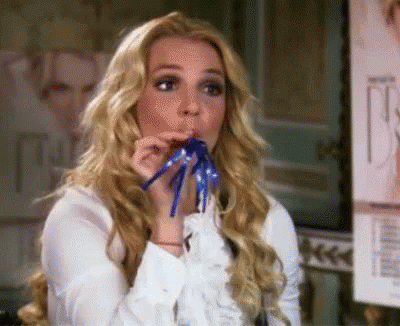  FOLLOW THE METEOR Thank you for reading The Meteor! Got this from a friend?
|
![]()
A historic day for the pill
 July 13, 2023 Hello again, Meteor readers, We are officially less than ten days away from the Barbie movie opening, and I don’t know about you, but I’m stoked. My boyfriend and I got matching outfits for the premiere, and today’s newsletter will actually be a 50,000-word essay unpacking the feminist significance of everyone’s favorite plastic doll. 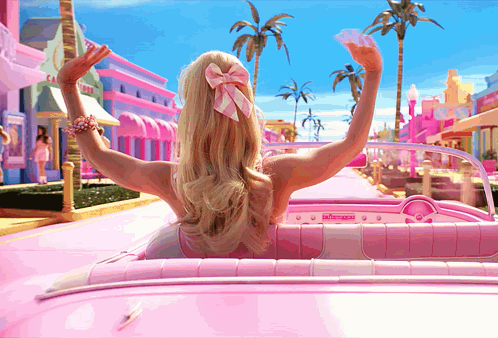 Kidding! Today’s newsletter actually features a monumental step forward for reproductive rights, studio executives exhibiting “Christmas Carol” levels of villainy, trans people winning (what else is new?), and Justice Clarence Thomas’ latest ethics issues. Trying on every shade of pink I can find, Bailey Wayne Hundl  WHAT'S GOING ONA huge birth-control victory: For the first time ever, the FDA has approved a birth control pill for all-ages use without a prescription. Opill, a progestin-only pill to be taken once daily, is set to be available for over-the-counter purchase by early 2024, according to Perrigo, the pill’s manufacturer. How did this feel for contraceptive experts? “Like Christmas!” said Dr. Heather Irobunda, an OB-GYN and one of the founders of Obstetricians for Reproductive Justice. “I’m very happy this happened. It’s an important step in destigmatizing reproductive health meds.” And it’s hardly a radical step: Birth control pills are already sold over-the-counter in over 100 other countries. But this victory serves as a powerful message that birth control is safe and popular—at a time when conservatives are beginning to target contraception, both culturally and politically. As the director of the FDA's Center for Drug Evaluation and Research, Dr. Patrizia Cavazzoni, pointed out, Opill is “safe and is expected to be more effective than currently available nonprescription contraceptive methods.” This decision does, however, raise questions we don’t yet have answers to:
And putting the pill—varieties of which have been safely used for five decades—on store shelves makes sense, says Dr. Irobunda. Keeping it prescription-only, she notes, signaled that “they didn’t trust us to know how to take it. This is a safe drug and can be easily managed, but ‘behind the counter’ made it something that we needed to consult with someone ‘who knows our bodies better’” in order to take. But as reproductive rights advocates have been saying this whole time, who knows our bodies better than us? AND:

 WEEKEND READSOn abortion rights: Last election cycle, all six states with abortion on the ballot scored a win for abortion access. This cycle’s game plan: Do it again, but even better. On (un)fair pay: “Orange is the New Black” was huge for Netflix—so why wasn’t it huge for all the people who worked on it? On positive masculinity: Toxic male gender roles can be like quicksand for young men. But there’s a way out. On “doing the work”: The Meteor’s Samhita Mukhopadhyay explores how social justice organizations can be as active in supporting their staffs as they are in supporting their causes.  FOLLOW THE METEOR Thank you for reading The Meteor! Got this from a friend?
|
![]()
The cops are sliding into your DMs
 July 11, 2023 High vibrations, Meteor readers, It’s 7/11! All my numerology girlies just nodded while the rest of you are wondering why I feel the need to state the date. But ~mystically speaking~ when those two numbers appear together, they become a powerful and affirming “angel number,” which numerologists say can serve as a reminder to move forward within your intuition and a sign that the universe is open to providing you with new opportunities.  Meanwhile, here on earth: we’ve got a troubling update on a Nebraska abortion case, an AI lawsuit, and a fond almost-farewell to Megan Rapinoe. Reading the stars, Shannon Melero  WHAT'S GOING ONPrivacy: Last week, a mother in Nebraska pled guilty to helping her daughter obtain an illegal abortion and discard the fetus after it was expelled. Now Jessica Burgess and her daughter Celeste, 18, are both looking at jail time for their actions. You may remember Jessica and Celeste’s case from last August, shortly after the overturn of Roe v Wade, when charges were first filed against them. What made the case unique was not simply the fact that two women were going to be tried for acquiring and using abortion pills in a state where it was newly illegal—but also the questions the case raised about data privacy. A refresher: After Celeste found out she was pregnant, she and her mother communicated via Facebook messages and came up with a plan to end the pregnancy and discard the fetus so as not to leave behind any evidence. Because Celeste was already 20 weeks pregnant and Nebraska bans abortion after 12 weeks gestation, the two knew they could not go to a medical provider to do any of this—hence the secrecy. They thought the messages they shared about the ordeal were private. But Facebook’s parent company, Meta, turned over their correspondence to the police after being served with a search warrant (pertaining to a different investigation)—and the police had what they needed to charge the mother and daughter. The case was among the first to highlight just how vulnerable abortion seekers, many of whom rely heavily on online searches for care, had become in the immediate aftermath of Dobbs. As Shamira Ibrahim wrote for The Meteor last year, apps that use location data and cookie tracking “help law enforcement investigate and prosecute abortion-seekers and their respective networks of support.” That’s exactly what happened in the Nebraska case. Now the women face up to two years in prison, and a man who helped them bury the fetus was also charged and given probation. If you or someone you know lives in an abortion-ban state and needs care, Ibrahim suggests visiting the Digital Defense Fund, which provides steps for protecting your abortion-related data privacy—from Facebook, the phone company, and anyone else you don’t want to know your business. AND:
  FOLLOW THE METEOR Thank you for reading The Meteor! Got this from a friend?
|
![]()
Are legacy admissions inherently racist?
 July 6, 2023 G’day mates, It’s been a busy few days this week. First off, Wimbledon is underway. I’m trying to turn my infant into a tennis prodigy by osmosis, so we’re really getting into these matches together. Once it’s over, we’ll be hitting the court to see what she’s learned.  Also having a busy week: Mark Zuckerburg, who launched his latest offensive in the battle of the billionaires in the form of a new social media platform called Threads. Elon clapped back by threatening a lawsuit. Keeping all of the social media managers I know in my prayers tonight. If you’re one of the 10 million people who signed up for Threads in its first hours of life, give us a follow! In today’s newsletter, we’re chatting about college admissions, the attack on Jenin, and checking in on Greta Thunberg. Working on my forehand, Shannon Melero  WHAT'S GOING ONOut of your (Ivy) league: The Supreme Court’s decision to eliminate affirmative action in college admissions is only seven days old. But Harvard, one of the schools at the center of the decision, won’t be getting any breathing room. On Monday, three civil rights groups came together to file a complaint with the Department of Education (DOE) against the school, challenging its use of legacy and donor-based admissions. The groups are arguing that these practices are in direct violation of Title VI of the Civil Rights Act and “are not justified by any educational necessity.” Quick refresher on what legacy admissions are: If Biff Moneysworth graduated from Harvard in 1999, then that means Biff Jr. will get special consideration when his application hits the admissions desk. Because Jr. is more likely to get in, that means one less spot for someone like Joanna, a first-generation applicant who has the grades but not the family connections. Considering that people of color weren’t allowed to even apply to Harvard (let alone any other Ivy league school) until after World War II, who is most likely to benefit from the maintenance of legacy admissions?  Harvard’s response to the SCOTUS decision and this latest complaint leaves much to be desired: “The University will determine how to preserve our essential values, consistent with the Court’s new precedent.” Yes girl, give us nothing. Obviously, this doesn’t mean that people of color will never get into Harvard, but the barriers just got a lot higher. And while affirmative action was an imperfect Band-Aid to the institutional racism that spawned legacy admissions, it was something. The groups behind the complaint are asking the DOE to investigate Harvard’s use of legacy admissions and decide whether or not it violates Title VI. They’re also asking the DOE to cut federal funding to Harvard unless the school removes legacy and donor considerations from the admissions process. If successful, this could once again change the landscape of college admissions—or at least force the courts to treat all forms of “preference” equally. But in such a secretive and subjective process, racism will always find a way through. As Dr. Anne A. Cheng told us last week, “The problem with college admissions is that it is itself such a vague process; it takes into consideration many factors, and every factor itself has the potential to hold racial and gender bias.” AND:
 WEEKEND READSOn immigration: How Trauma Migrates tells the story of migrant women’s journeys across America’s southern border and the untreated trauma that lingers once they make it. On SCOTUS: Did the Robed Ones quietly legalize stalking? Sort of. On sports: The iconic Venus Williams was defeated in the first round of Wimbledon this week, but her legacy reaches beyond even her 11 previous title wins. On parenthood: Diaper legislation? It’s a thing. And with the loss of abortion access, the once invisible problem of “diaper need” is more glaring than ever.  FOLLOW THE METEOR Thank you for reading The Meteor! Got this from a friend?
|
![]()
Moms Can Do Anything…Even Shape an Election
By Dr. Gillian Frank
“MOMS AREN’T EXTREMISTS & THEY KNOW WHAT’S BEST FOR THEIR KIDS”
This headline appeared on Fox News’ chyron on June 7 beneath Nikki Haley, the former governor of South Carolina and current presidential candidate. It punctuated her defense (and praise) of the far-right group Moms for Liberty, an organization that the Southern Poverty Law Center recently classified as a hate group. But Haley isn’t the only one signing up to be a “joyful warrior”; conservative politicians are lining up to court the group’s endorsement, which, if gained, can go a long way to securing a victory in 2024.
Why are conservatives glomming onto a fringe group of so-called concerned parents? Over the past two-and-a-half years, Moms for Liberty has established branches across the United States and become a powerbroker in local and statewide elections. And the group’s ascent has been fueled, in part, because it has revitalized decades-old conservative rhetoric of “mother knows best,” “family values,” and “parental rights.” That language has helped MFL become the chosen vehicle for conservatives to express anti-Black, anti-LGBTQ, and anti-statist ideas and policies.
A little backstory: The founders of Moms for Liberty are three Floridian women with deep ties to the state’s Republican Party. They organized the group in 2021 to oppose masking requirements and other COVID remediation measures. Their slogan “We Do Not Co-Parent With the Government” quickly caught on in far-right circles, and MFL’s leaders became fixtures on right-wing media platforms, their organization swiftly growing across dozens of states.
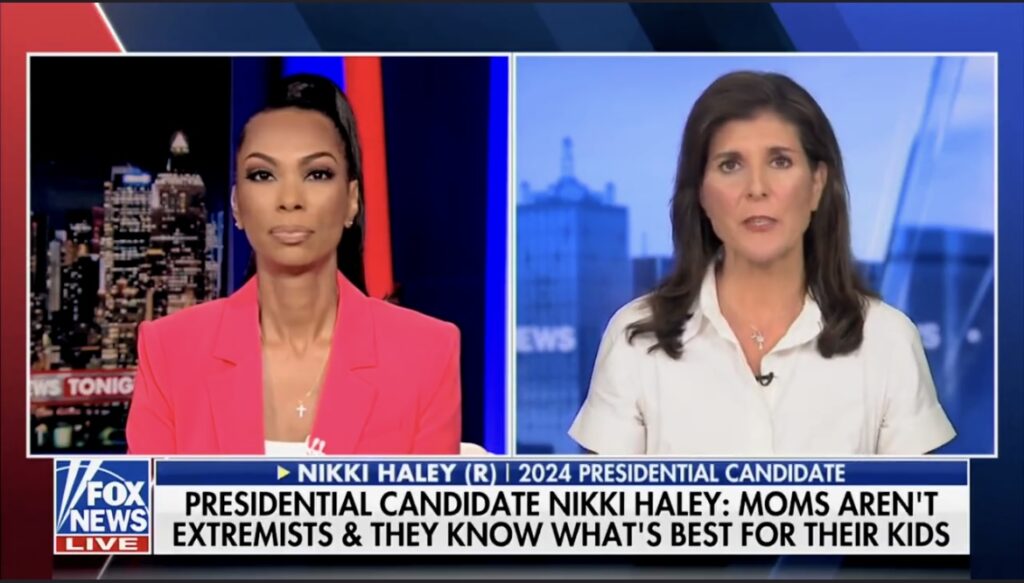
After Florida’s governor prohibited vaccination and masking requirements in public schools in mid-2021, MFL no longer had their initial cause to cleave to and became a solution in search of a problem. The group remained focused on classrooms but trained its sights on long-standing conservative targets like textbooks, library books, and classroom curricula; anything that, in their words, promoted “woke indoctrination.” Right-wing media outlets with national audiences continued to showcase and validate these efforts, prompting local and national politicians to attend their fundraiser events and conservative donors to support them financially. Together right-wing media, politicians, and funders helped the group rapidly grow its membership, cultivate and endorse candidates, and spread its message even further.
The core of that message involves policing gender, racial, and sexual diversity, putting the group in lockstep with the priorities of the Republican Party. Trans youth hold an outsized place in MFL’s imagination. And in the name of “protecting” kids from trans folks and what they call “Gender Critical Theory,” they have successfully undertaken drives to fire teachers, censor books, and restrict what can be taught in the classroom.
But these maternalist campaigns are far from new. Since the 20th century, as historian Michelle Nickerson notes, conservative mothers have “put themselves forward as representatives of local interests who battled bureaucrats for the sake of family, community, and God.” Such conservative mothers’ groups, Nickerson explains, launched “local crusades” and often “successfully overpowered school administrators, boards of education, and teachers…by anointing themselves spokespeople…” Crack open the annals of conservative activism and you can find self-identified mothers battling sex education, school integration, communism, the ERA, and numerous other issues.
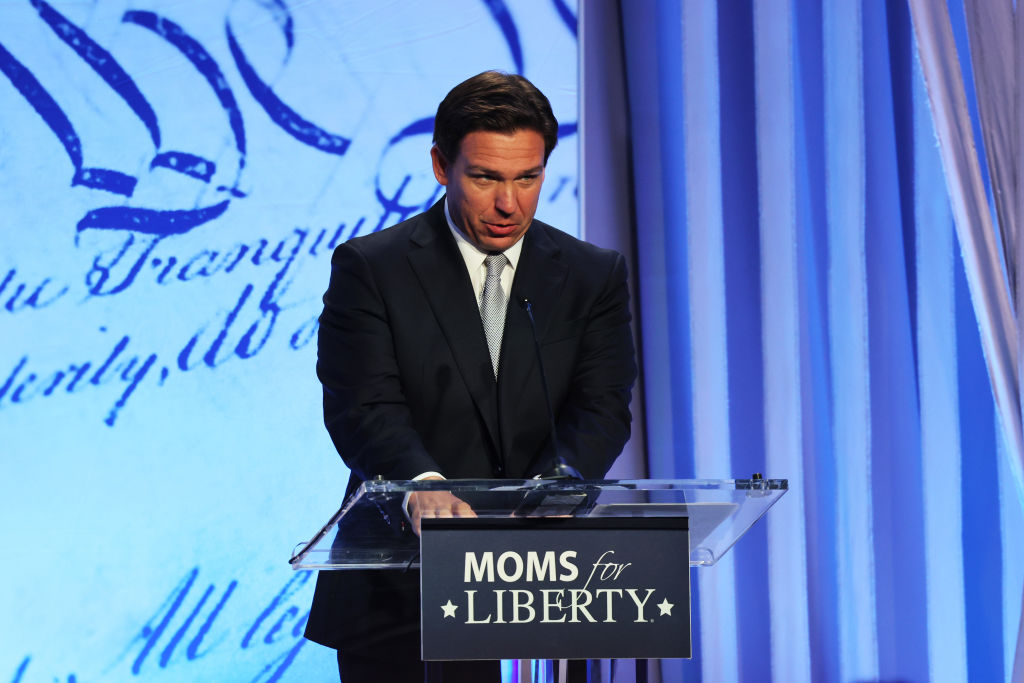
But, of course, MFL’s simultaneous opposition to “critical race theory” and “gender critical theory” has local roots in Florida. And the electoral vote-rich state, which has historically been the centerpiece of presidential campaigns, has in turn shaped national politics.
Since the 1950s, conservative opposition to LGBTQ rights in Florida has been intertwined with its opposition to African American rights. And the language used to oppose both the full inclusion of African Americans and LGBTQ folks was (and remains) protecting (white) children and (white) “parents’ rights.” In 1956, two years after the Supreme Court's Brown v. Board of Education decision, and against the backdrop of massive resistance to integration, the Florida Legislative Investigative Committee, known as the Johns Committee, worked to neutralize African American civil rights organizations and the ongoing attempts to integrate Florida’s schools. When lawsuits stopped these racist pursuits, the committee shifted gears to investigate lesbian and gay teachers in Florida’s schools. Cheering on the Johns Committee’s efforts were White Citizens Councils and women’s groups like the Women’s Republican Club of St. Petersburg.
Using language that presaged MFL’s accusations of “grooming” and “indoctrination,” the Johns Committee argued that homosexual teachers were especially dangerous to schoolchildren because of a “desire to recruit them” and went even further by claiming “homosexuals are made by training rather than born.”
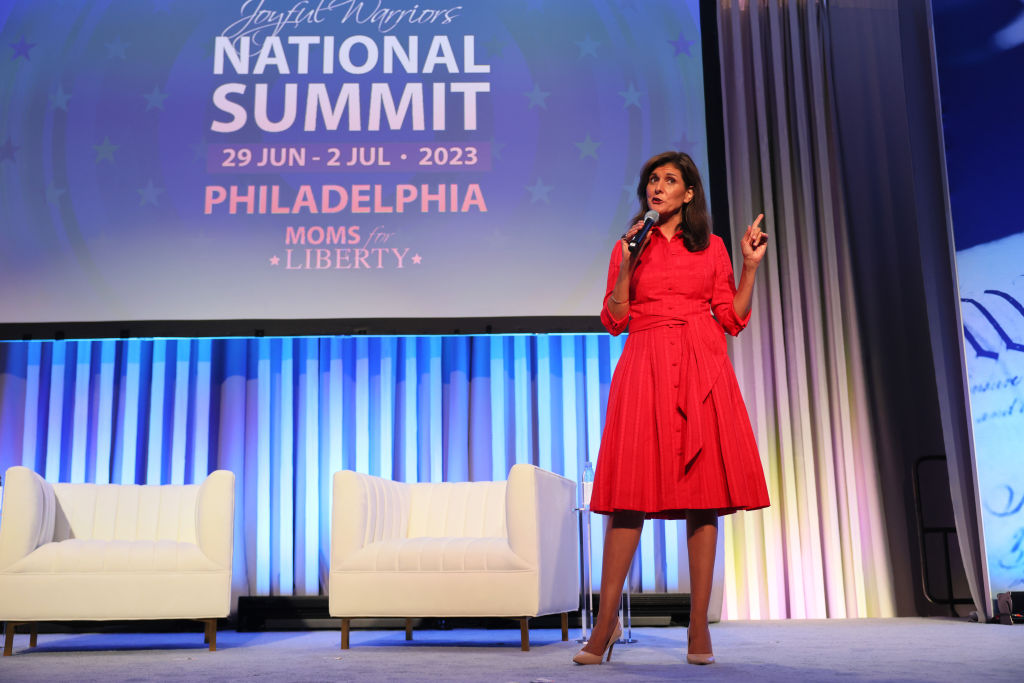
As the Johns Committee hounded civil rights leaders in the 1950s and terrorized teachers suspected of being gay or lesbian in the 1960s, reactionary Floridians continued to support statewide and local Citizens Councils. One of the first statewide efforts (which MFL members have since mirrored) was a 1957 attempt to purge progressive books from school libraries across the state, including a book containing the work of African American artists. In an effort to force the Florida Congress of Parents and Teachers to adopt a segregation resolution, Citizens Councils also targeted local PTAs with letter-writing campaigns, in which they alleged “a lot of teachers in the state are brainwashing the children and are teaching that white and Negro students should mix socially. A check should be made on all teachers through the state and anyone found guilty should be fired immediately.” Parents’ rights and white supremacy became interchangeable terms in the conservative lexicon, with the former becoming code for the latter.
History is not quite repeating itself, but it certainly is rhyming. There are numerous MFL-led or inspired efforts underway: In South Carolina, MFL school board members fired one district’s first Black superintendent and are seeking to ban books from libraries that teach “critical race theory.” In Tennessee, MFL members are seeking to remove children’s books about Martin Luther King Jr., Ruby Bridges, and Sylvia Mendez. In one Pennsylvania county, MFL-backed school board members have implemented policies that have, among other things, barred rainbow pride flags. With 275 MFL-endorsed candidates now holding office, the list goes on. In yoking together racial anxieties and sexualized fears, Moms for Liberty has taken the greatest hits out of the far-right playbook and reinvigorated them.
In the 1930s, James Waterman Wise famously warned that American fascism would be “wrapped up in the American flag and heralded as a plea for liberty and preservation of the constitution.” Wise was partially right. These anti-democratic impulses also come wrapped in images of family and as pleas to save “our” children. Indeed, MFL’s well-tested strategy of protecting “our” children from external dangers reinforces the notion that LGBTQ and African American youth are not “us,” and that they and their stories do not belong in “our” spaces. Even more pernicious, the language of maternalism and child protection seeks to obscure the anti-democratic political machinery at play—to make the work look homey and grassroots.
When presented with the image of a mother acting in the “best interest” of children, we are meant to not ask important questions like: Whose mother are you? Whose liberty do you stand for? Are all children being protected by your efforts? With the 2024 elections looming, these are some of the questions that we’ll need to keep asking over, and over, and over.
SCOTUS v. Affirmative Action
|
Greetings, Meteor readers, It’s an unfortunate day for higher education. This morning, the Supreme Court handed down a ruling that will effectively end affirmative action in the college admissions process, rolling back what Justice Sonia Sotomayor, dissenting, called “decades of…momentous progress” and presenting yet another barrier for students of color. As a Latina from one of the poorest counties in the state of New York, the process of getting into college was grueling—years of Latin to help me perform better on the SAT, endless extracurriculars, the pressure to get high grades, the money my mother shelled out for an exorbitant prep-school tuition bill. All based on the understanding that I would only succeed if I was extraordinary. Only to finally make it and get called a “spic” by a stranger who wrote it on my dorm room door. It’s laughable that affirmative action was seen as preferential treatment when, for many of us, it was simply a way to gain access to a historically white institution and then spend four years proving you earned your way in. In today’s newsletter, Samhita Mukhopadhyay talks to Princeton University professor Dr. Anne A. Cheng about the ways students of color have been pitted against one another in this debate. Thinking of all the multicultural student unions today, Shannon Melero  WHAT'S GOING ON

 SCOTUSCutting Race-Based Admissions Will Not Help Asian American Students“Why do we assume that if you keep down the number of Asian Americans, you'll get more African Americans?” BY SAMHITA MUKHOPADHYAY  (IMAGE BY BILL CLARK VIA GETTY IMAGES) Today, the Supreme Court struck down the practice of affirmative action in college admissions. In two cases—one against Harvard and another against the University of North Carolina—the plaintiffs argued that considering race in the admissions process was a discriminatory practice, violating the Equal Protection Clause of the Constitution. The decision has been looming for months, but its implications are yet to be seen. That’s partly because the cases themselves are complicated, bringing to the surface core tensions in affirmative action—who it includes, who it leaves out, and why we ultimately need it. I spoke to Dr. Anne A. Cheng—a scholar of Asian American and African American literature and cultural theory at Princeton University—about all of it. Samhita Mukhopadhyay: What were your thoughts when you first heard the Supreme Court would be looking at race-based admissions in colleges? Dr. Anne A. Cheng: It is very complicated. Affirmative action is an imperfect and yet still necessary solution to a very broken social system in America. I am stunned by how persistent the debate is around affirmative action. I remember a long time ago, when I was a graduate student at Stanford, I was stopped on campus by someone wanting to take a photo of me because they wanted it to go with an article about some scandal about Asian American admission at Stanford and other elite institutions. That was several decades ago, and it's like we are still there. The thing that I've been trying to parse out in understanding the implications of this case are narratives like the myth of the model minority and how often immigrant communities are pitted against the African American community. Some of the plaintiffs in this case are Asian American students who believe that Black and Latine students were picked above them. Do you think there is validity to that anxiety? There are two different anxieties that I always see around this issue. One is Asian Americans feel like…there's a quota on them. [The Harvard case argued that Asians were discriminated against because race-conscious admissions led to Asian applicants scoring lower marks on traits like likeability, whereas the UNC case argued that Asian and white students were denied admission, their spots taken by Black and Latine students]. But there is [an] anxiety about Asian Americans overrunning American universities. And so, you're right...Somehow, affirmative action—at least race-based affirmative action—always seems to imply that it can only benefit African Americans, not also Asian Americans. College admissions, as you can probably guess, is an extremely closely guarded practice, and faculty are kept far out of it. We know nothing about undergraduate admission. The admission office [doesn’t] ask us for counsel. They don't ask for opinions. They don't even tell us anything. Would I be surprised to find out that there is a quota? No, I would not be surprised. It’s such a complicated process. Even if you say something like, ‘We're not looking at race at all, we're looking at a well-rounded individual.’ Well, what constitutes well-roundedness, right? Some Asian American or Asian students might say if you are an applicant and you are Asian American and, let's say, you are interested in science—you are immediately pegged as this nerd that's not well-rounded. There are all these stereotypes at play. And so I think that part of the problem with college admissions is that it is itself such a vague process; it takes into consideration many factors, and every factor itself has the potential to hold racial and gender bias.  BLACK AND ASIAN STUDENTS PROTESTING ON DIFFERING SIDES OF THE AFFIRMATIVE ACTION DEBATE JUST THIS MORNING. (IMAGE VIA ANNA MONEYMAKER VIA GETTY IMAGES) I think that's why this case is so complicated. One of the things the plaintiff is arguing is that Asian American students were more likely to be ranked as not being well-rounded or having lower marks in personality or certain softer skills, which is a type of implicit bias. Yes, it's a very, very, very stubborn and old bias. There's a psychology study done by a psychologist called Susan Fiske. It's called a warm competency test, where she interviewed a bunch of people about their perceptions of Asians and Asian Americans in America along two vectors. One is, are they warm or are they cold? Like: likability. The other question is, are they competent? As you can exactly guess the answer, most people—that is to say, most non-Asian people—found Asians to be competent but unlikeable. This unspoken, unconscious bias is not just Asian Americans, but African Americans and Latinos, too. When you talk about a well-rounded person, we're also talking about, in many cases, the question of class. If you're from a middle-class family, then yes, you had the opportunity to take cello lessons and play soccer and do whatever. But if you come from a lower-income household, there's much less opportunity for you to be a tennis player and a chess player. That kind of well-roundedness has a class dimension. How do I say this? From my reading, there may be validity to the idea that Asian American students applying to Ivy League schools experience some kind of discrimination. But the solution is not to strike down affirmative action—it could also be to expand affirmative action implementation so as also to include Asian Americans. Because ostensibly, it's supposed to, right? Well, there's been a lot of debate about that. I think that [sometimes] affirmative action does not include Asian Americans because they're not considered minorities in certain places. The other thing that's sort of very vexing is that there's a sense often that the so-called “too many Asian Americans” [are] taking spots away from other racial minorities, rather than the fact that they're taking spots away from whites! Why do we assume that if you keep down the number of Asian Americans, you'll get more African Americans? It's weird. Right. I mean, that's why it's a red herring. It's not real. It's a total red herring. All it does is, I think, drive the wedge between Asian Americans and other racialized minorities. It doesn't actually acknowledge that when it comes to elite institutions, I think the anxiety should be much less about how many Asians there are and much more about how they are treated once they are here. That’s true for African American students and Latine students, too—admissions is only one part of this. Yeah, absolutely. It's not just about letting them in. It's about creating a culture in which they can thrive. What do you think is the best strategy for universities to retain the most diverse talent they can? I wish that institutions would think about diversity as a genuine intellectual project and not as a numbers game. Because if they thought it was a genuine intellectual project... The number games mean that you try to get the numbers up so you look like you are an anti-racist institution. But if you're serious about it, it means not only making sure diverse people get in, but also that you are ready to foster these diverse people. You're ready to meet them where they are and then nourish them and help them grow. Do you feel anxious about the outcome of this case? I do…Young people, what they really need is a chance, an opportunity. That's what affirmative action does: give an opportunity to someone who may not otherwise get it.
 FOLLOW THE METEOR Thank you for reading The Meteor! Got this from a friend? Sign up for your own copy, sent Tuesdays and Thursdays.
|
![]()
